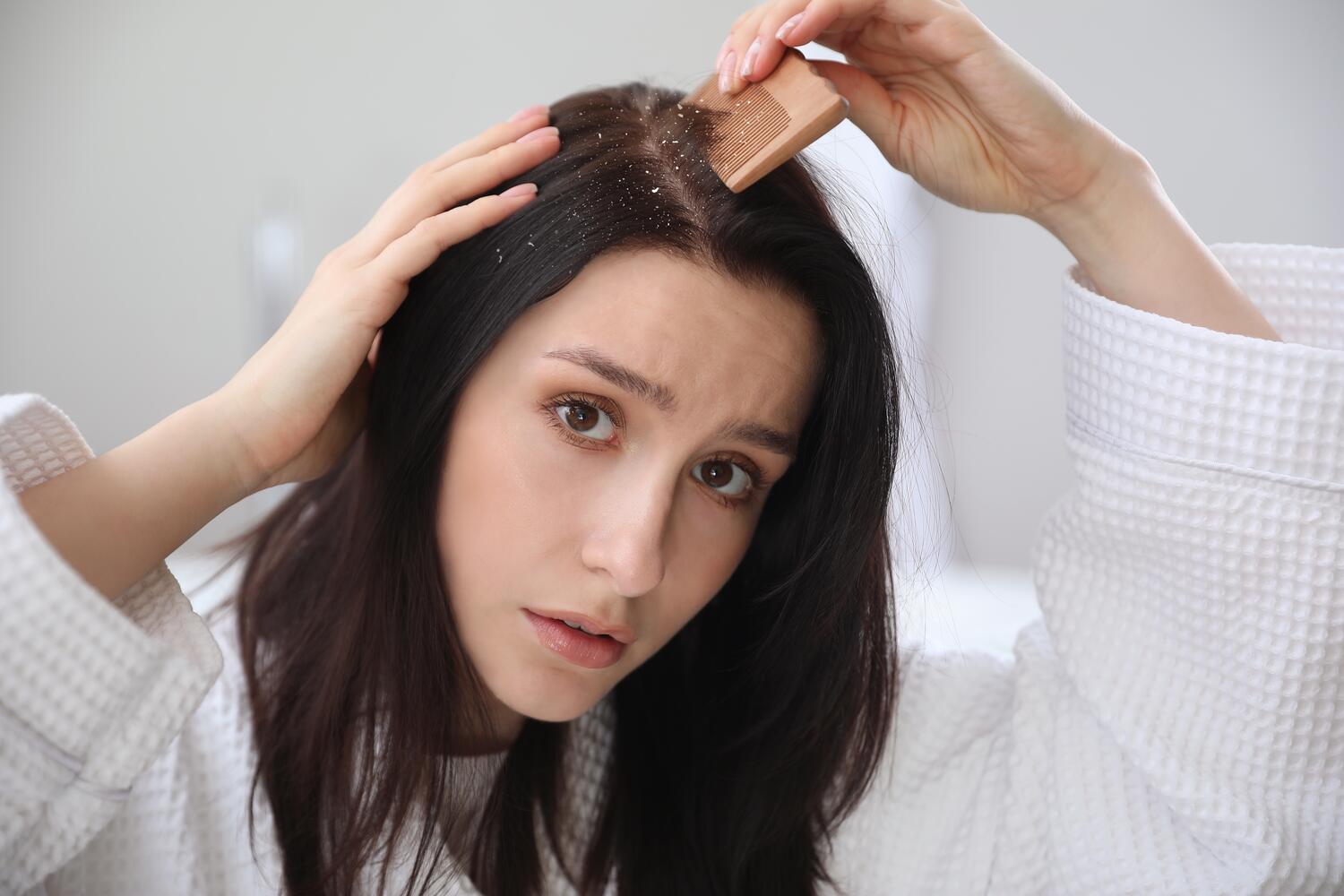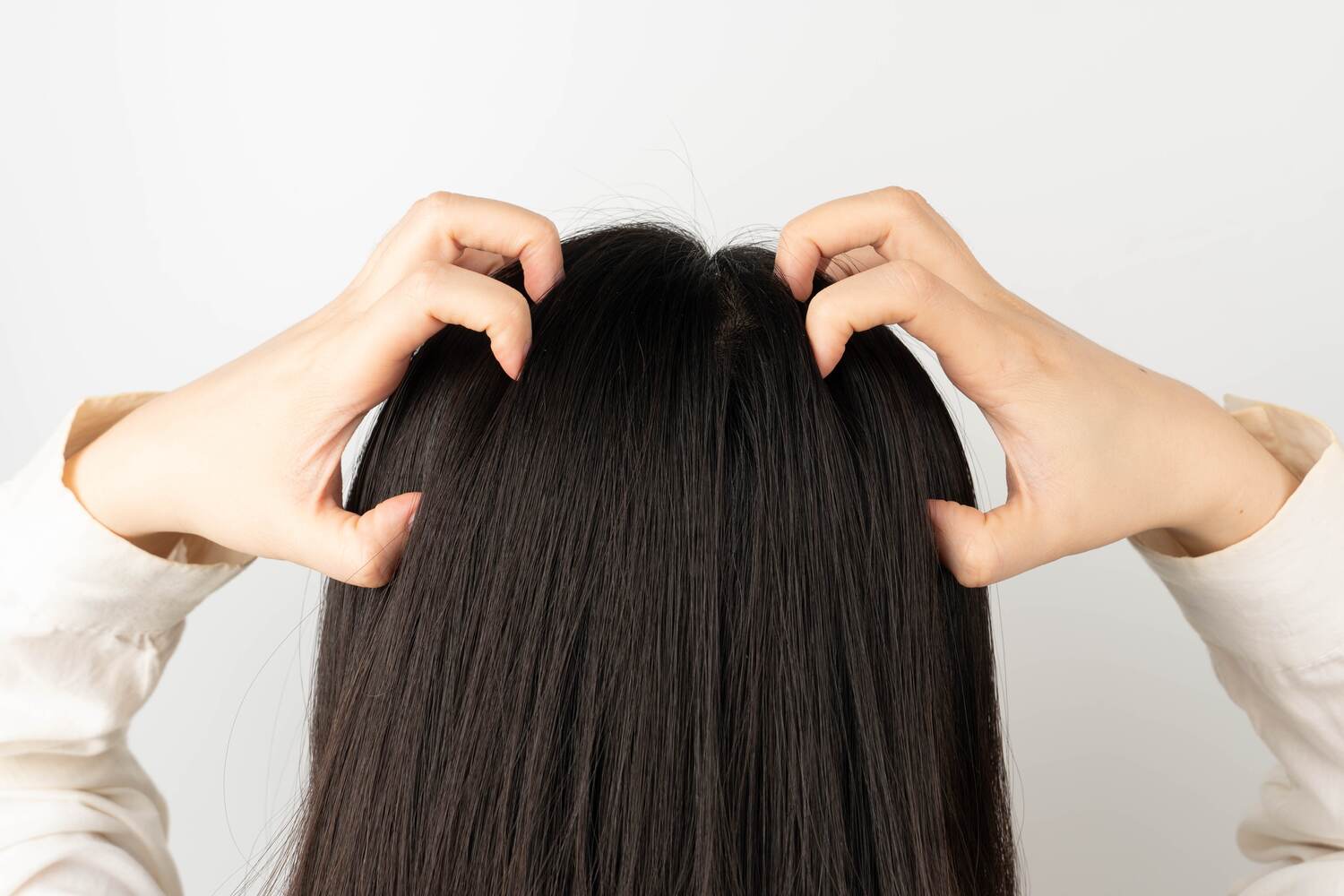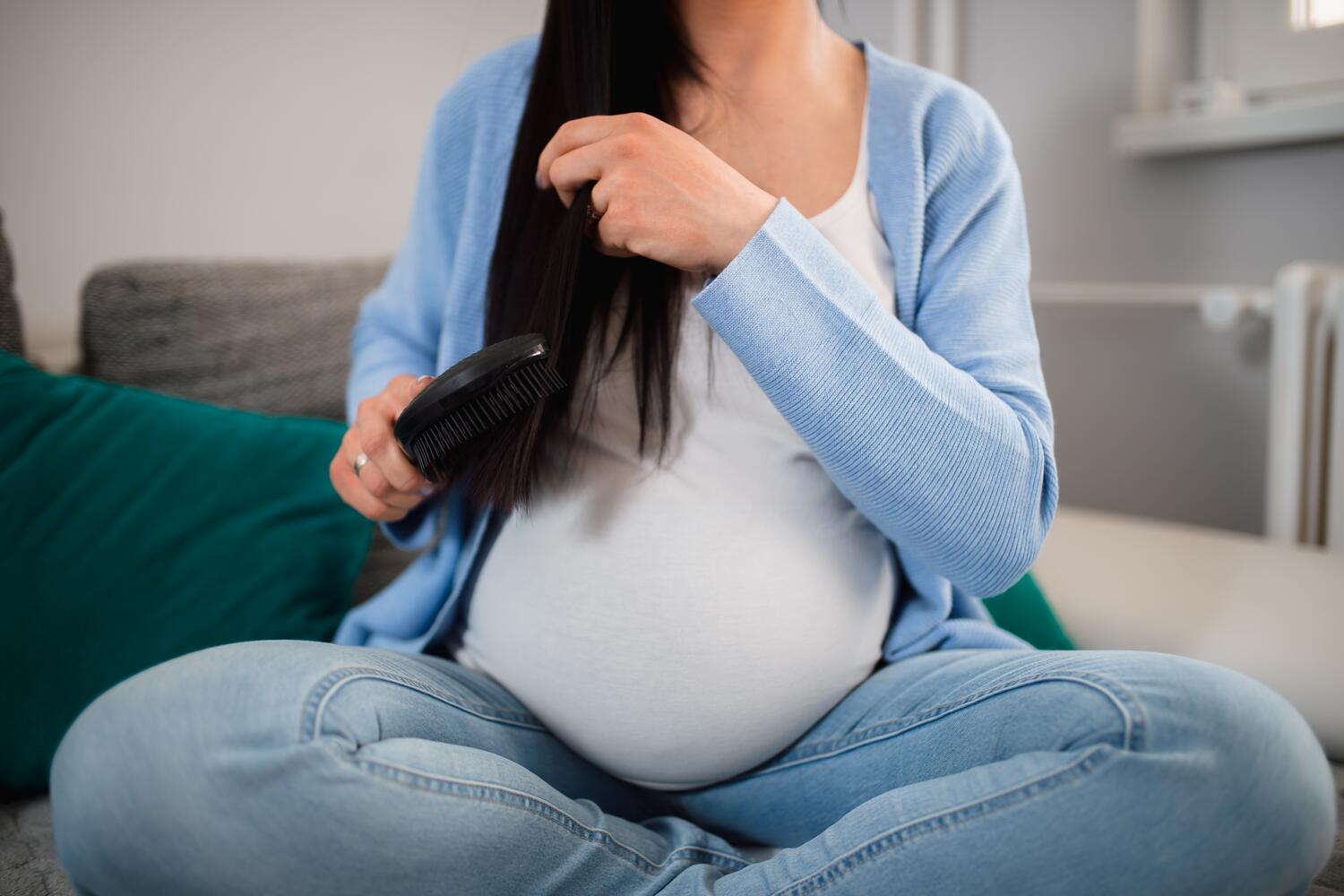
A pregnant woman goes through enough changes and challenges during her journey. While one might anticipate changes in the skin, hair and even weight gain, dandruff during pregnancy may not be on most women’s lists. Dandruff is not something anyone would be happy about. Almost everyone with dandruff is ready to try various remedies to get rid of it for good.
When you mention pregnancy, people are ready to talk about various health concerns and issues they face. Some pregnant women comfortably discuss pregnancy bloat, constipation, and acne. However, we rarely hear about dandruff during pregnancy. So, here we are, to throw some light on this uncomfortable topic not many talk about.
In This Article
- How Common Is Dandruff During Pregnancy?
- Causes of Dandruff During Pregnancy
- Treatment Options for Dandruff During Pregnancy
- Top 7 Home Remedies To Treat Dandruff Naturally During Pregnancy
- Can You Prevent Dandruff During Pregnancy?
- Top Tips to Prevent Dandruff While Pregnant
- When Should You Consult a Doctor?
- FAQ’s
How Common Is Dandruff During Pregnancy?
Our skin is always shedding dead skin cells making way for new cells. Underneath all that hair on your head is your scalp which is covered in skin. When this part of your body sheds dead skin cells at an increasing rate, the dead skin accumulates and results in a white flaky substance called dandruff.
Dandruff during pregnancy is quite common and nothing to worry about. It is not just the yeast-like fungus or dry skin that leads to dandruff. Stress and medications can also cause dandruff. Pregnancy can be quite stressful for some women and some may have varied reactions to the medications they are on.
Causes of Dandruff During Pregnancy

Usually, dandruff is mainly caused by dry and irritated skin. Pregnancy can bring about a sea of changes in your health and skin. Some of the main reasons for dandruff during pregnancy are:
- The presence of Malassezia – a yeast-like fungus that thrives on the oil produced by adults’ scalps.
- Excess oil secretion in the scalp can lead to oily layers, which in turn can cause dandruff.
- Scalp irritation or sensitivity to various products
- Skin conditions like psoriasis, or eczema
- Hormonal changes can increase the sebum production on your scalp, leading to an oily scalp. Accumulation of these oily layers can lead to dandruff.
- Producing more dead skin cells or flaking of the scalp can be your immune system’s response to various infections or foreign invaders.
- A sudden drop in the temperature, can make your scalp dry and start flaking. This can happen if you travel to a cold place and come back or due to changes in temperature and humidity in the place you live.
Treatment Options for Dandruff During Pregnancy
If the dandruff is just mild, changing your shampoo can help. Opt for a shampoo that is not strong and does not have a strong fragrance either. A moisturizing shampoo can prevent your scalp from drying up and reduce the occurrence of dandruff.
In case of severe dandruff, medicated creams and shampoos can help. Your dermatologist will check your scalp, and prescribe a shampoo or cream, which they feel is safe. Do not resort to using medicated products on your own, just because it worked for someone you know, does not mean it will work out for you. On the contrary, you may aggravate dandruff further.
Some ways in which your doctor might treat your dandruff are
- Corticosteroid creams and ointments
- Antidandruff shampoos that contain salicylic acid sulfur, selenium sulfide, zinc pyrithione, etc.
- Shampoo containing nizoral if dandruff is mild or you are prone to reactions
Top 7 Home Remedies To Treat Dandruff Naturally During Pregnancy

When you are pregnant, you may not be very comfortable trying new products or medications. No one can predict how the dandruff medications can react or interfere with your pregnancy medications.
Here are some home remedies you can try to treat dandruff naturally during pregnancy
1. Oils
Oiling your scalp regularly can prevent it from drying and flaking. Ensure the oil does not clog your pores. You can use coconut oil, almond oil, or olive oil to moisturize the scalp. Tea tree oil can help prevent fungal infections.
2. Natural Herbs
Herbs and oils made of herbs like sage, rosemary, and thyme can help soothe the irritated scalp and prevent fungal infections. It can help attain and maintain a healthy scalp.
3. Aloe Vera
Aloe vera is very nourishing and acts as a natural moisturizer. It can help prevent scalp irritation and infections.
4. Apple Cider Vinegar
Rinsing your hair with apple cider vinegar after a hair wash can help remove any fungal residue and prevent it from recurring.
5. Garlic
The juice of garlic can help control dandruff. It can be quite pungent smelling, especially for pregnant women sensitive to strong smells.
6. Walnut
Walnut leaves have a soothing effect on irritated skin and are present in traditional medicines to treat dandruff and skin conditions.
7. Fenugreek Seeds
A paste of soaked fenugreek seeds can help moisturize and condition your hair and also prevent infections or inflammations of the scalp.
Can You Prevent Dandruff During Pregnancy?
Yes, you can prevent dandruff. It can be difficult to anticipate when you may have dandruff during pregnancy but you can reduce the risks by following a few precautions. Dandruff during pregnancy is a trigger response or reaction to certain elements you expose your scalp to. if you can identify the cause of dandruff, you can definitely find a remedy and use it to prevent the recurrence of dandruff.
Top Tips to Prevent Dandruff While Pregnant

If dandruff during pregnancy worries you, and you are looking for safe ways to prevent it when you are pregnant, here are a few ideas
- Ensure your scalp is neither too dry nor too oily
- Oiling your scalp and washing it off regularly can help prevent the accumulation of oily layers
- Reduce your stress levels. Find activities and methods to reduce stress which can not only cause dandruff but can lead to an acne breakout too
- Follow a well-balanced diet and include all essential nutrients in your regular diet.
- Get sufficient sleep. Maintaining a regular sleep cycle can help improve both your immunity as well as skin quality
- Use a conditioner to prevent drying of your hair, but do not leave the conditioner on your scalp as it can have a comedogenic effect.
- If you regularly steam or style your hair using heat, reducing it can help control dandruff. Excess heat can dry and irritate the scalp.
When Should You Consult a Doctor?
Mild dandruff is nothing to worry about. If your dandruff seems stubborn and does not go away even after a few washes or changes in products, you need to consult a doctor. If the dandruff is causing too much trouble or is making your scalp very itchy and sensitive, you need medical advice.
Dandruff during pregnancy is a common change many pregnant women experience. With a little care, and using the right products at the right time can help control the dandruff and prevent it from recurring.
FAQ’s
1. Is It Safe to Use Medicated Dandruff Shampoos During Pregnancy?
Yes, it is safe to use such shampoos during pregnancy, as long as your doctor prescribes it. These shampoos can interfere with your pregnancy medications. So use them only if the doctor advises you to.
2. Can Pregnancy Hormones Cause Dandruff?
Pregnancy hormone fluctuations can send mixed signals to your skin. It can make your scalp produce more sebum, which can in turn clog the pores on your scalp and cause dandruff. Similarly, pregnancy hormones can cause new reactions to products, resulting in dandruff.
3. Can Dandruff Have Any Effect on the Baby During Pregnancy?
No, there is no scientific proof for this. Dandruff affects the scalp or your skin. Since it happens on the outside, it will not impact the baby in any way.

